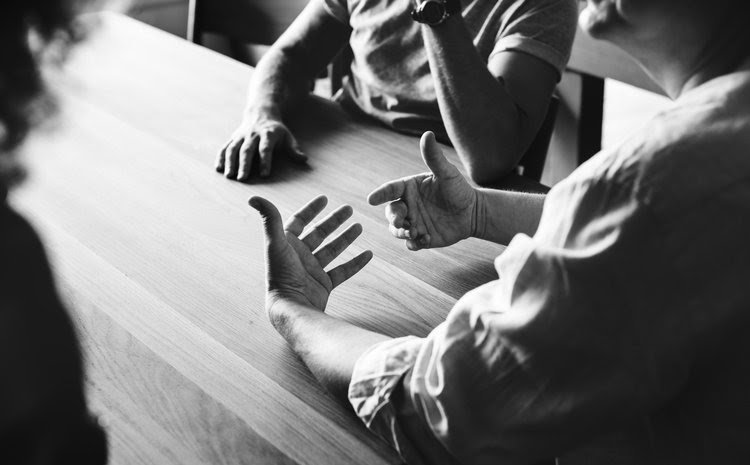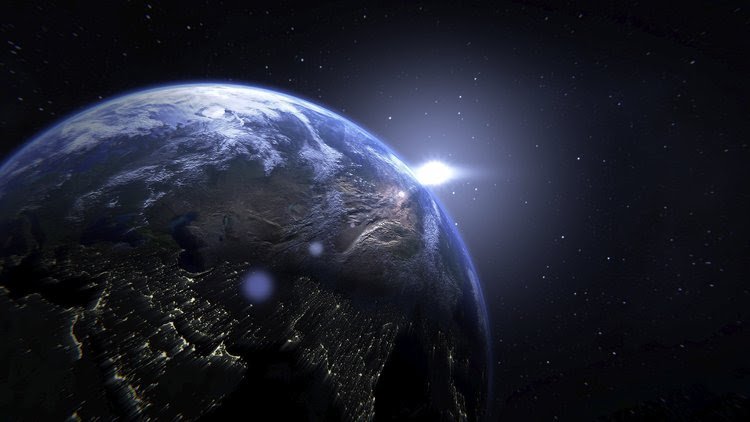Take Responsibility - Issue 19 - 24th July 2022
Taking responsibility is difficult. From children, we try to avoid blame, for fear of trouble or the disappointment of adults. However, as adults we try our hardest to instil into our children that taking responsibility is morally right and that being honest will make life easier later. In other words, thetrouble that comes your way will either be insignificant now that you have taken responsibility or significant if you blame someone else now and come clean later. Most of us learn this lesson either straight away or via failure to avoid blame and responsibility. We learn through the negative consequences of not taking responsibility. However, many of us seem to have lost this ability or at the very least only learnt this lesson at a surface level. When we do wrong or make a mistake that is obviously our fault, we own up, however it’s amazing how little is needed to slightly muddy those waters of responsibility so that we do not take responsibility and blame other people. The problem here is that many of us as children were only taught this lesson thinly, in that we were taught that if we were caught and blamed someone else, we would be punished more so than if we simply owned up now. We were not however taught the reason for doing so. We must take responsibility for our mistakes, not simply because we may be punished by an external source later, but because we will punish ourselves. If that negation of responsibility is left unchecked, we will continue to hurt others, including ourselves, and we will continue to live a life of laziness as well hatred towards ourselves, whether we are conscious of it or not.
Furthermore, the reason that the lesson we are taught as children regarding responsibility is surface-level is because it is only taught with regards to wrong-doing. Wrong-doing being acting in a manner that is morally wrong. We are not taught that we must also take responsibility for inaction. Inaction is just as much something to take responsibility for as wrong action. For example, let’s imagine a friend and you are, as children, playing in the park. Another child asks to play and your friend insults him and pushes him away and you stand and watch. You don’t laugh, you don’t join in, you do nothing. As much as your friend should take responsibility for his wrong-doing, you should be taught to take responsibility for your inaction, as your inaction contributed to the situation. Whereas, you could have acted to make the situation is better. You could’ve stopped your friend. You could’ve helped the other boy up and apologised on behalf of your friend. As much as we hate, as children and as adults, to take responsibility or to apologise on behalf of another’s wrong-doing, you are actively making situations and theworld better and hopefully teaching lessons via your actions. If you don’t want to do this, you’re passively making the world worse through your inaction.
When you put off becoming better, you make the world a worse place
Which brings me onto inaction in comparison to positive action. We are not taught as children that inaction is passively making the world worse by you not fulfilling your potential. Fulfilling your potential makes the world better, whatever that may be. A fulfilled person tips over positive dominos every day, by infecting others with their motivation. On the flip side, a person who is passively not fulfilling their potential, or worse actively not fulfilling their potential, complain and whine about the bad hand they’ve been dealt, bringing everyone else around them down to their level. Take responsibility for your inaction, change and act.
Taking responsibility is altering your mindset for the better. It’s struggling to blame yourself for your own inadequacies. It’s easy to blame others for thecorruption and greed of the world, rather than owning up to the corruption and greed that you are contributing to the world. You may not think you are, but even inaction or unfulfilled potential is robbing the world of new ideas, creative output, information, aid, empathy etc. When you put off becoming better, you make the world a worse place. When you quit on a diet after a week instead of researching why you keep quitting, you make the world a worse place. When you skip a workout one day which ripples onto the next day leading to more weight put on, less action taken and not even a drop of potential filled, you make the world a worse place. When you blame others for your own inadequacies, when you blame your partner for not listening to you when you haven’t informed them of the problem, you are responsible. The world and its people need you to act. If no one did, the world would’ve imploded into chaos and needless suffering ages ago, whilst you sat on thesofa needlessly punishing yourself and those around you, locally and globally. Perhaps you should’ve told your partner that they haven’t done thedishes in a while, when you first noticed instead of letting the issue fester and grow and until you unnecessarily explode in rage creating a grander than it needs to be argument. Perhaps your boss does not intend on bringing hell up from below and directing it upon their employees, but instead has a heavy load of expectations from their own boss and too much responsibility to handle and perhaps, instead of gossiping and bitching, you should act, help and make the problem better for everyone regardless of your opinions or petty grievances. Then, maybe, your boss will lighten the load off of everyone after you’ve helped alleviate some of theirs. Perhaps, the person who cut you off in traffic did so because they are driving to an emergency that involves a loved one and they did not deliberately want to make you angry. Perhaps the bartender who did not smile at you or who gave you cold service just found out they or a loved one has terminal cancer and is not being cold to you deliberately. Perhaps you should still tip them. Not to reward bad service but to make the world a better place for everyone.
Take responsibility for your actions. Take responsibility for what you can change. If you continually do this, you’ll psychologically realise, just like theStoic philosophers thousands of years ago did, that you cannot control others behaviour or the events of the world, but you can and should take responsibility for your own actions and act accordingly, as if every situation could be made better by your action, because it can.
Keep On Struggling
Gregor
Film I Loved - Elvis
This was a beautifully tragic portrayal of such a complex and unique individual. It could only have been directed by Baz Luhrmann. Austin Butler, as Elvis, was incredible, to thepoint where at times I wasn’t sure if I was watching and listening to the real Elvis or him.
Watch the trailer for Elvis below.
Song I’m Enjoying Playing - Bloom
This song by Paper Kites is a warm and cosy one which features some intricate guitar licks which I found difficult to grasp but fun to play once I did. It’s also just a pleasant song to listen to.
Listen Below.
Another Movie I Loved (Reluctantly) - Top Gun Maverick
Anyone who knows me knows that I find Tom Cruise questionable due to his strong ties to Scientology, so I am hesitant to watch any of his movies as this view usually clouds my judgement of his films. However, thesequel to Top Gun was very entertaining, to the point where I forgot, for a while, that Cruise is associated with the “Church” of Scientology. To make matters worse, Cruise and his cast were heavily involved in the stunts of the film, making it even more impressive (to my despair).
Watch the trailer for Top Gun Maverick Below.
Quote to Ponder
In the hopes of reaching the moon men fail to see the flowers that blossom at their feet - Albert Schweitzer
References
Forbes.com - Elvis Image
Stock Images - Rawpixel.com
Wikipedia - Paper Kites Image
Rotten Tomatoes - Top Gun Maverick Image





